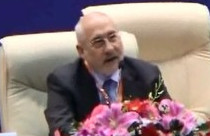
. > RESEARCH > PHILOSOPHY
How Han Dynasty monarchy changed Confucianism
Author : FUKAGAWA MAKI Source : Chinese Social Sciences Today 2020-01-02

Interaction Between Confucianism and Monarchy During the Han Dynasty
According to Interaction Between Confucianism and Monarchy During the Han Dynasty by Li Ruohui, a professor from the Department of Philosophy at Xiamen University, monarchy in the Han Dynasty (206 BCE–220 CE) changed Confucian thought to a certain degree. In the early and middle periods of the Western Han Dynasty (206 BCE–8 CE), legal and political systems that evolved from the harsh ruling systems of the Qin Dynasty (221–207 BCE) inspired Confucians to attempt to reform the Han with the idea of rites, a movement which suffered setbacks. In later Western Han Dynasty, Confucians ultimately gave way to the supreme authority of the emperors by accepting and adapting to existing situations.
This change was a deterioration of the ethics advocated by Confucianism, that is, a change from “two-way” to “one-way” claims of morality. Two-way ethics requires both parties in a relationship to fulfill their responsibilities and obligations; one-way ethics requires only one of the two parties, usually the party of the lower classes, to adequately perform their responsibilities and obligations. Li argues that Confucians of the early and middle periods of the Western Han Dynasty requested superiors, especially emperors, to perform their responsibilities and obligations. Later on, Confucians gradually gave up these claims, and China formed a society dominated by one-way ethics.
The book starts with the system of rites of the Zhou Dynasty (1046–256 BCE), and it shows that people under this system adhered to a two-way code of ethics. Kings of Zhou were no exception, and they assumed the obligation to protect their subjects. The wielding of power was bound by virtue and courtesy. After the Qin Dynasty unified China for the first time, rule of law took the place of the previous rites system. Emperors were higher than the law and exercised power with violence and coercion, thereby forming the ethical norms of obedience.
There appeared two schools within Confucianism during the Han Dynasty, specifically, New Text Confucianism focusing on Confucian classics recompiled in the Han’s formal script and Old Text Confucianism focusing on those written in the pre-Qin script. The two schools were also different in many other aspects, such as opinions on political systems. Confucian scholars of the new text school hoped to restore the two-way ethics and replace rule of law with the ritual system. However, the result was that they did not establish a complete set of etiquette. In contrast, Confucian scholars of the old text school advocated replacing the two-way ethics with one-way ethics, and tended to use Confucianism to gloss over the rule of law and justify the supreme authority of monarchs and general submission of subjects.
Fukagawa Maki is an associate research fellow from the Department of Philosophy at Sun Yat-sen University.
(Edited by YANG LANLAN)
Interview with Wang Gungwu on significance of studying overseas Chinese
Wang Gungwu is a distinguished Australian historian who studies overseas Chinese. He currently works at the Faculty o...
-
On the rat/mouse of the zodiac
2020-02-20
-
Regional development calls for Huaihe culture’s soft power
2020-01-10
-
Archaeological discoveries unveil Maritime Silk Road
2020-01-06
-
China’s industrial art printing
2019-12-10
-
Yue-Gan Ancient Road: A journey into Hakka history
2019-05-13
-
The Lantern Festival in Dream of the Red Chamber
2019-02-18













 2011-2013 by www.cssn.cn. All Rights Reserved
2011-2013 by www.cssn.cn. All Rights Reserved